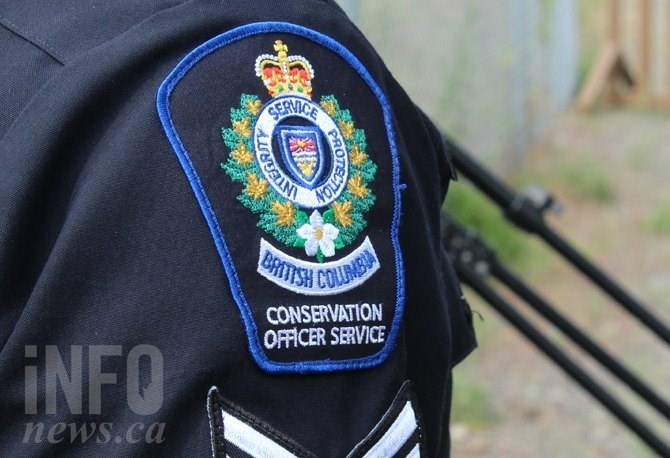
FILE PHOTO
(BRENDAN KERGIN / iNFOnews.ca)
July 09, 2022 - 10:09 AM
Thousands of invasive mussels were removed from a massive barge that was travelling to B.C. from Lake Ontario, and some will be used to train mussel-detecting dogs.
Removing the thousands of mussels was the largest invasive mussels decontamination ever, according to a release from the Conservation Officer Service.
The barge was being transported in two 12-metre sections, each three metres tall and three metres wide. It required specialized equipment and took 10 hours over the course of two days. Inspectors had to travel to Richmond from the Okanagan and the Lower Mainland to complete the work.
“This was the largest, most significant discovery of zebra mussels on a watercraft our teams had ever experienced. To decontaminate the vessel, we required a specialized operational plan and space due to the sheer size,” Insp. Dave Webster said in the release.
“I am proud of how quickly our teams mobilized to stop invasive mussels from reaching B.C. waters. This is a testament to the success of the Invasive Mussel Defence Program and its co-ordinated approach with our neighbouring provinces to tackle the threat of this invasive species.”
The vessel, which was coming from Lake Ontario and was heading to a Lower Mainland waterway for industrial use, was redirected to Richmond after inspectors with B.C.’s Invasive Mussel Defence Program learned that it appeared to be covered in zebra mussels.
“They knew the consequences of allowing the barge in B.C. waters could have significant impacts on local ecosystems and infrastructure because the invasive mussel could establish itself and overtake native species,” the release says.
Mussel detection dogs, Kilo and Major, will be learning how to detect invasive mussels by training with some of the samples from this decontamination.
Kilo and Major are German shepherds who often assist Conservation Officers at watercraft inspection stations during the summertime.
“Zebra mussels might be smaller than a fingernail, but they cause huge problems if they invade lakes and streams. Not only can they clog water pipes and ruin boat engines, they can cause significant damage to the aquatic ecosystems that sustain local plant and wildlife species,” Josie Osborne, Minister of Land, Water and Resource Stewardship, said in the release.
“Thanks to the efforts of our Conservation Officer Service and program partners, B.C.’s waterways remain free of this invasive species. This incident is a fantastic example of how co-operation and collaboration are preventing invasive mussels from taking hold in B.C. Let’s keep it this way.”
The release says the vessel was put under a 30-day quarantine order which came to an end this week.
To contact a reporter for this story, email Dan Walton or call 250-488-3065 or email the editor. You can also submit photos, videos or news tips to the newsroom and be entered to win a monthly prize draw.
We welcome your comments and opinions on our stories but play nice. We won't censor or delete comments unless they contain off-topic statements or links, unnecessary vulgarity, false facts, spam or obviously fake profiles. If you have any concerns about what you see in comments, email the editor in the link above.
News from © iNFOnews, 2022